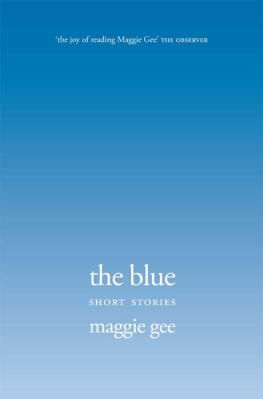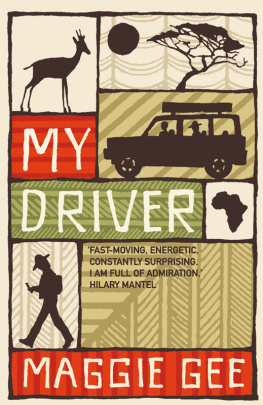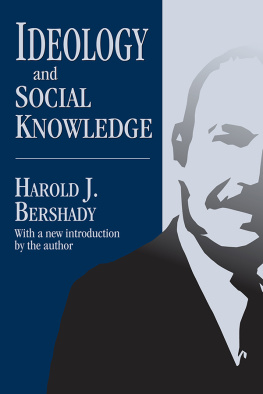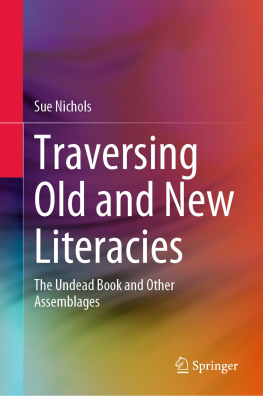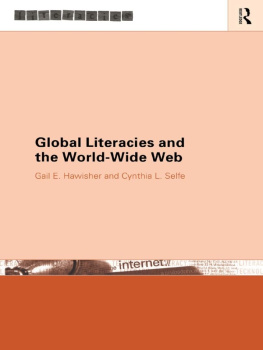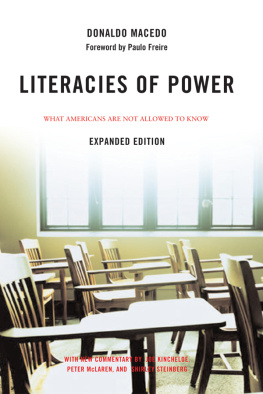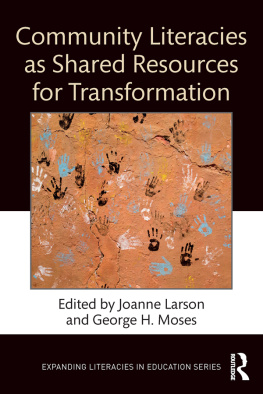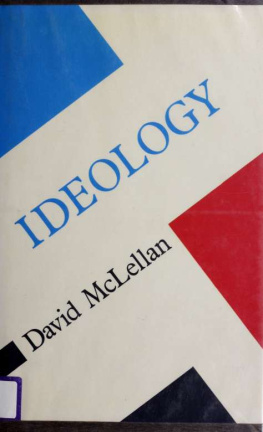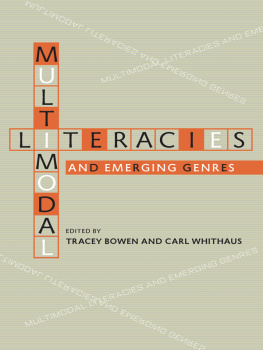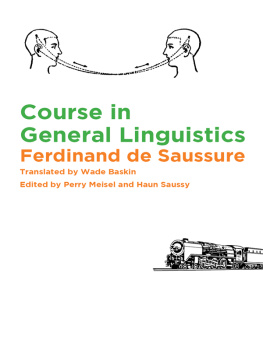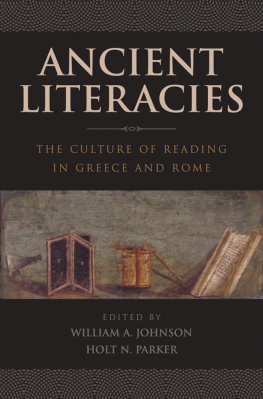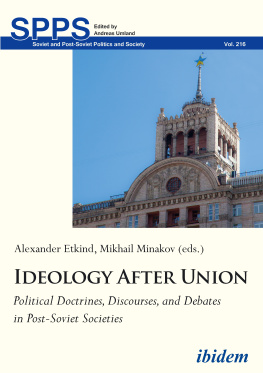Gee - Social linguistics and literacies: ideology in discourses
Here you can read online Gee - Social linguistics and literacies: ideology in discourses full text of the book (entire story) in english for free. Download pdf and epub, get meaning, cover and reviews about this ebook. City: London;New York, year: 2015, publisher: Taylor and Francis;Routledge, genre: Politics. Description of the work, (preface) as well as reviews are available. Best literature library LitArk.com created for fans of good reading and offers a wide selection of genres:
Romance novel
Science fiction
Adventure
Detective
Science
History
Home and family
Prose
Art
Politics
Computer
Non-fiction
Religion
Business
Children
Humor
Choose a favorite category and find really read worthwhile books. Enjoy immersion in the world of imagination, feel the emotions of the characters or learn something new for yourself, make an fascinating discovery.
- Book:Social linguistics and literacies: ideology in discourses
- Author:
- Publisher:Taylor and Francis;Routledge
- Genre:
- Year:2015
- City:London;New York
- Rating:4 / 5
- Favourites:Add to favourites
- Your mark:
- 80
- 1
- 2
- 3
- 4
- 5
Social linguistics and literacies: ideology in discourses: summary, description and annotation
We offer to read an annotation, description, summary or preface (depends on what the author of the book "Social linguistics and literacies: ideology in discourses" wrote himself). If you haven't found the necessary information about the book — write in the comments, we will try to find it.
Gee: author's other books
Who wrote Social linguistics and literacies: ideology in discourses? Find out the surname, the name of the author of the book and a list of all author's works by series.
Social linguistics and literacies: ideology in discourses — read online for free the complete book (whole text) full work
Below is the text of the book, divided by pages. System saving the place of the last page read, allows you to conveniently read the book "Social linguistics and literacies: ideology in discourses" online for free, without having to search again every time where you left off. Put a bookmark, and you can go to the page where you finished reading at any time.
Font size:
Interval:
Bookmark:

Social Linguistics and Literacies
In its first edition, Social Linguistics and Literacies was a major contribution to the emerging interdisciplinary field of sociocultural approaches to language and literacy, and was one of the founding texts of the New Literacy Studies.
This book serves as a classic introduction to the study of language, learning and literacy in their social, cultural and political contexts. It shows how contemporary sociocultural approaches to language and literacy emerged and:
engages with topics such as orality and literacy, the history of literacy, the nature of discourse analysis and social theories of mind and meaning;
explores how language functions in a society; and
surveys the notion of discourse with specific reference to cross-cultural issues in communities and schools.
This fifth edition offers an overview of the sociocultural approaches to language and literacy that coalesced into the New Literacy Studies. It also introduces readers to a particular style of analysing language-in-use-in-society and develops a distinctive specific perspective on language and literacy centred on the notion of Discourses. It will be of interest to researchers, lecturers and students in education, linguistics, or any field that deals with language, especially in social or cultural terms.
James Paul Gee is the Mary Lou Fulton Presidential Professor of Literacy Studies and a Regents Professor at Arizona State University.
Social Linguistics and Literacies
Ideology in Discourses
Fifth edition
James Paul Gee

Fifth edition published 2015
by Routledge
2 Park Square, Milton Park, Abingdon, Oxon OX14 4RN
and by Routledge
711 Third Avenue, New York, NY 10017
Routledge is an imprint of the Taylor & Francis Group, an informa business
2015 James Paul Gee
The right of James Paul Gee to be identified as author of this work has been asserted by him in accordance with sections 77 and 78 of the Copyright, Designs and Patents Act 1988.
All rights reserved. No part of this book may be reprinted or reproduced or utilised in any form or by any electronic, mechanical, or other means, now known or hereafter invented, including photocopying and recording, or in any information storage or retrieval system, without permission in writing from the publishers.
Trademark notice: Product or corporate names may be trademarks or registered trademarks, and are used only for identification and explanation without intent to infringe.
First edition published by Falmer Press 1990
Fourth edition published by Routledge 2011
British Library Cataloguing in Publication Data
A catalogue record for this book is available from the British Library
Library of Congress Cataloging in Publication Data
Gee, James Paul.
Social linguistics and literacies : ideology in discourses / James Paul Gee. Fifth edition.
pages cm
Includes bibliographical references and index.
1. Sociolinguistics. 2. Literacy. 3. Language acquisition. 4. Discourse analysis. I. Title.
P40.G44 2014
306.44dc23
2014037280
ISBN: 978-1-138-85385-0 (hbk)
ISBN: 978-1-138-85386-7 (pbk)
ISBN: 978-1-315-72251-1 (ebk)
Typeset in Times New Roman
by Cenveo Publisher Services
Contents
Abstract
Social Linguistics was initially an attempt to do two things. First, it was an argument that a new field was emerging out of work from different disciplines. In the first edition of this book, this field was called the New Literacy Studies. Second, I wanted to develop within this field a particular perspective on language and literacy with special reference to educational issues. The New Literacy Studies is now established and the perspective developed here has become one standard viewpoint within that field. What started as an intervention is now after the fact, so the book can serve as an introduction to what it originally only hoped to help bring into existence. The book has been updated over the years with revisions to old material and the addition of new material, but its basic arguments have stayed the same.
Social and cultural approaches to language and literacy have made great progress since the first (1990), second (1996), third (2007) and fourth (2011) editions of this book. I hope that I have made some progress as well. In each new edition, I have tried to bring the book up to date and to make it easier to read. I have added and subtracted material. I have revised old analyses and added new ones. Nonetheless, through all five editions, it has remained at core the same book.
When this book was first written, the traditional view of literacy was cognitive or mental. Literacy was seen as something residing primarily inside peoples heads, not society. This book sought to show the limitations of a purely cognitive view of literacy. However, in the intervening years, work on the human mind has become itself less purely cognitive and more social and embodied. This newer work makes psychology fit a good deal better with the sociocultural viewpoints expressed in this book. Thus, in newer editions of this book I have discussed how theories about the social mind and embodied learning relate to sociocultural approaches to language and literacy.
Since the first edition of this book, digital media and digital literacies have come to play a much more dominate role in society. They have changed the ecology of reading and writing and added new literacy, like forms of producing and consuming meaning. The new editions of this book discuss these matters more and more and relate them ever more deeply to how traditional literacy now works in the world.
This fifth edition rearranges the structure of the book for the first time. I have placed the material in more, but much shorter chapters than before. And I have changed the order of the chapters a bit. I hope and believe this will make the book more accessible and the argument clearer. As with every new edition, I have revised the writing in the book to seek greater lucidity and clarity, a never-ending task in writing and part of what makes writing such an interesting challenge.
This book offers an overview of the sociocultural approaches to language and literacy that coalesced into the New Literacy Studies. It also introduces readers to a particular style of analysing language-in-use-in-society (see also Gee 2014a, b). Finally, the book develops a distinctive specific perspective on language and literacy centred on the notion of Discourses (with a capital D).
The general argument of the book is this: to appreciate language in its social context, we need to focus not on language, but on what I will call Discourses. Discourses (big D Discourses) include much more than language. To see what I mean, consider the unlikely topic of bars (pubs). Imagine I park my motorcycle and enter my neighbourhood biker bar. I say to the burley, leather-jacketed and heavily tattooed man sitting next to me: May I please have a match for my cigarette? What I have said is perfectly grammatical English. Yet, it is, nonetheless, wrong, unless I have used a heavily ironic tone of voice. It is not just the content of what you say that is important, but also how you say it. And in this bar, I have not said it in the right way. I should have said something like Gotta match? or Wouldya give me a light?
But now imagine I say the right thing (Gotta match? or Wouldya give me light?), but while saying it, I carefully wipe off the bar stool with a napkin to avoid getting my newly pressed designer jeans dirty. In this case, Ive still got it all wrong. In this bar they just dont do that sort of thing. I have said the right thing, but my sayingdoing combination is all wrong. Its not just what you say or even how you say it. Its also
Next pageFont size:
Interval:
Bookmark:
Similar books «Social linguistics and literacies: ideology in discourses»
Look at similar books to Social linguistics and literacies: ideology in discourses. We have selected literature similar in name and meaning in the hope of providing readers with more options to find new, interesting, not yet read works.
Discussion, reviews of the book Social linguistics and literacies: ideology in discourses and just readers' own opinions. Leave your comments, write what you think about the work, its meaning or the main characters. Specify what exactly you liked and what you didn't like, and why you think so.




